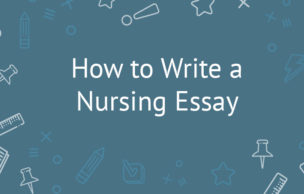How To Write a Profile Essay
A profile essay has a lot in common with informative papers, as the purpose of both works is to present information about a person, event, or any other subject. Differently from most other assignments, it would be wise to treat profile essays as journalism work — mostly because this paper should be both factual, informative, and descriptive. Additionally, it should be engaging and interesting to read, so a certain degree of entertainment cannot be taken off the counts. Finally, it should present your own perspective on a certain subject. All of these factors should make the reader want to go over your profile essay.
Now that we have established what a profile essay is, it’s time to figure out how to write it. We’ll be quite honest here — writing this as well as informative essay outline is not an easy job because you have to present a character, make your setting attention-grabbing, and convey your subjective opinions clearly. At the same time, writing a profile essay is a rewarding (even fulfilling) experience — especially, if you manage to get it right. So, how do you do that, exactly?
Follow a good lead
The first rule of writer’s club is to steal from the best. Sure, you cannot do the actual stealing, but there is nothing wrong with looking for inspiration from reliable sources. Check out several already published works — they should serve as great samples and offer you the so-much-need inspiration. Plenty of magazines publish profile essays (Esquire, New York Times, etc.), so you can easily start there.
Sure, you will be reading profile essays of famous people, and it is quite likely that your own story will be very much different. Still, you can try to determine what makes these essays better than the others. Pay attention to how the characters are presented, which details are used to make the story more colorful, etc. Also, do not forget that quality profile essay should be establishing some sense of connection — if for example, you are reading a ten-paragraph paper, by the end of paragraph two, the reader should already feel like he/she ‘knows’ the person.
Carefully consider your subject
Choosing the subject is one of those things that can make a difference between a successful and a boring essay. Sure, if you can write about an accomplished person (scientist, entrepreneur, veteran) — that’s great. Still, if you are writing a profile essay for college, you should better avoid describing celebrities (that is, unless you know them personally). Choosing someone you know and can properly describe would be a much better choice. Plus, writing about a ‘small’ person can be as exciting as writing about the President (and vice versa). Here, everything depends on you, as a writer.
Interview the person if possible
Unless you are writing about a dead person, an interview is a crucial step in writing a successful profile essay. And, even if you are writing about someone who’s already dead, there is always a chance to talk to the person’s relatives. Once again, when writing profile essays for college, this step is often optional. If however, you are working on a serious journalist project, completing an engaging profile essay without prior interview is barely possible.
As you get ready for the interview, make a list of questions in advance. This may seem like a no-brainer, but many beginning writers fail to properly prepare for the interview with their subjects. To make sure the conversation goes smoothly, you should, first of all, limit the number of yes/no questions on your list. Ask something your interviewee will have a chance to dwell upon. Leave a couple of yes/no questions just in case your subject is not in a talkative mood — they should help warm him/her up. And, of course, do your homework — find out as much about the person as you possibly can. No one enjoys talking about things that are readily available online.
The writing process
Now, comes the most important part — turning all of your thought process into words. If you have paid attention to the preparatory stages, the writing usually goes smoothly. Still, it is important to remember that your goal is not only to provide some factual and informative overview of a person’s character but to offer your own evaluation as well. Which is why, similar to all other essays you have written before, a profile essay will feature a distinct thesis statement. You will base your main body (and its supporting evidence) on this statement. So, try to make it interesting and compelling.
Next, remember that profile essay is not a transcript of you interviewing the subject (if you did that at all). This is a narration, and it flows as such. Just like any story, it should be properly subdivided into the beginning, the middle, and the end. It is also important to remember about logical transitions between all of these parts. In other words, you cannot just jump from one topic to another. There should be a natural and logical flow to your story. While it is also possible to use topical approach (revealing one topic fully and them moving on the other), most essay writers choose to combine topical and narrative writing techniques in their profile essays.
Most importantly, remember that your ultimate goal to engage the reader. So, you should both entertain and inform — if you manage both of these, your profile essay will definitely be a good read! The best tip here would be to use small details — they create a sense of exposure, of actually being a part of the story.
That’s pretty much it — the rest depends on your imagination and creativity. Good luck writing! Our blog has lots of interesting articles for you, check out narrative essay topics page.





